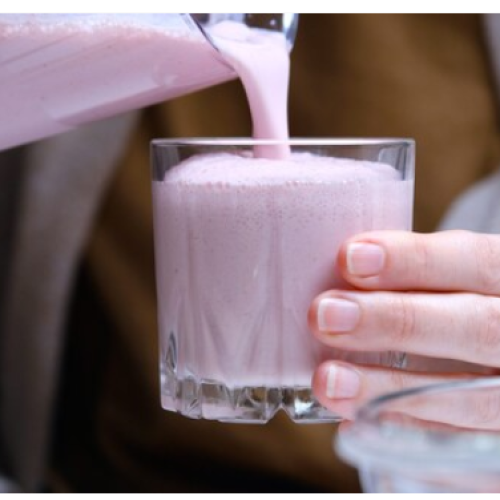The Power of Fasting
Twice a Week or Ten Days a Month for Health and Spiritual Wellness
Fasting is not just an act of abstention — it’s a complete purification of the body, mind, and soul. While millions around the world fast during Ramadan, many are unaware that the Prophet Muhammad ﷺ encouraged fasting beyond this sacred month — such as twice a week (Mondays and Thursdays) or ten days in a month.
Today, science catches up with what Islam taught over 1400 years ago. From detoxifying the body to sharpening mental focus, from preventing chronic diseases to improving spiritual consciousness — fasting is one of the most powerful tools we’ve been gifted.
In this blog, we explore:
-
The Islamic significance of voluntary fasting
-
The physical, mental, and emotional benefits of fasting twice a week or 10 days a month
-
The life-changing spiritual and health lessons from Ramadan
-
How you can incorporate this Sunnah into your modern lifestyle
I. Fasting in Islam: A Timeless Practice
Fasting (صوم / Sawm) is one of the most emphasized acts of worship in Islam. The Qur’an says:
“O you who have believed, decreed upon you is fasting as it was decreed upon those before you that you may become righteous.”
(Surah Al-Baqarah, 2:183)
While the obligatory fasting of Ramadan is well-known, the Prophet ﷺ regularly practiced voluntary fasting, especially on Mondays and Thursdays, and on special days such as:
-
White Days (Ayyam al-Beed) – 13th, 14th, and 15th of every Islamic month
-
Ashura (10th Muharram)
-
Day of Arafah (9th Dhul Hijjah)
These fasts were not merely acts of worship; they were tools of spiritual discipline, gratitude, and healing.
🌙 Fasting on Mondays and Thursdays: A Sunnah of the Prophet ﷺ
The Prophet ﷺ said:
“Deeds are presented on Monday and Thursday, and I like my deeds to be presented while I am fasting.”
(Tirmidhi, Hadith 747)
Imagine starting and ending your workweek with spiritual clarity, inner peace, and physical detox. That’s the wisdom behind fasting twice weekly.
📅 Fasting 10 Days a Month: A Balanced Sunnah Approach
A beautiful hadith states:
“Whoever fasts three days each month, it is as if he has fasted the entire year.”
(Sahih al-Bukhari 1976)
The Prophet ﷺ would often fast at least 3 days per month, especially during the White Days, but many scholars extend this to 10 days for consistent benefit.
II. Health Benefits of Fasting Twice a Week or Ten Days a Month
Modern science confirms what Islamic tradition knew centuries ago: Fasting is a miracle for the human body.
Here are some key benefits of intermittent fasting (especially twice a week):
🧠 1. Improved Brain Function and Mental Clarity
Fasting helps boost brain-derived neurotrophic factor (BDNF), a protein that supports cognitive function. It sharpens memory, enhances focus, and may protect against Alzheimer’s and dementia.
You think better. You feel lighter. You make clearer decisions.
❤️ 2. Heart Health and Reduced Inflammation
Fasting:
-
Reduces bad cholesterol (LDL)
-
Lowers blood pressure
-
Reduces markers of inflammation
Just 2 days of fasting weekly can drastically improve cardiovascular health, helping prevent strokes and heart attacks.
⚖️ 3. Weight Management and Metabolism Boost
Many people struggle with weight gain due to constant eating, especially processed carbs. Fasting resets your metabolism, burns fat, and promotes healthy insulin levels.
Unlike fad diets, fasting is natural, sustainable, and aligned with your body’s rhythm.
🧬 4. Cellular Repair and Detoxification
During fasting, your body undergoes autophagy — the process of cleaning out damaged cells and regenerating new ones. This process:
-
Detoxifies the liver
-
Boosts immunity
-
Fights aging and cancerous growth
It’s like a full-body cleanse, gifted from nature and supported by divine wisdom.
💡 5. Emotional Balance and Discipline
Fasting teaches patience, self-control, and gratitude. It breaks emotional dependency on food. Your mood improves, your resilience grows, and your inner peace becomes stronger.
Even psychologists now recommend intermittent fasting to fight anxiety, depression, and fatigue.
III. Ramadan: The Ultimate Fasting Reset
Ramadan is not just a month — it’s a spiritual university where we train our souls and our bodies. The physical act of abstaining from food, drink, and desires from dawn to dusk teaches us the essence of discipline, empathy, and divine connection.
✨ Ramadan’s Health Impact:
-
Better digestion: You give your organs a much-needed break
-
Detoxification: The body eliminates toxins at a deeper level
-
Blood sugar balance: Reduces insulin resistance
-
Better sleep cycles: Especially with adjusted eating habits
But most importantly, it teaches us to live minimally, consciously, and compassionately.
💞 Ramadan’s Emotional and Spiritual Impact:
-
Builds empathy for the poor
-
Strengthens family and community bonds
-
Revives daily prayer and reflection
-
Deepens duas, gratitude, and patience
This isn’t just religious benefit — it’s soul-level healing that affects our relationships, mental health, and purpose.
IV. Why Everyone Should Try Sunnah Fasting in Modern Life
In a world obsessed with over-consumption, fasting teaches us detachment and clarity. Whether you’re a student, entrepreneur, parent, or professional — fasting brings structure and strength to your week or month.
✅ Sunnah Fasting: Easy to Incorporate
-
Monday Motivation: Begin your week by fasting for Allah, gaining clarity and calm
-
Thursday Detox: End the week clean, light, and spiritually aligned
-
10-Day Monthly Reset: Pick any 10 days that suit your calendar — White Days, weekends, or mid-month breaks
You can align it with your gym days, work goals, or even family plans. It’s adaptable, sustainable, and spiritually powerful.
☕ Fasting and Productivity
Contrary to popular belief, fasting doesn’t drain you. It actually:
-
Increases mental sharpness
-
Reduces brain fog
-
Boosts self-discipline and control over time and tasks
It aligns your biology with productivity. You’re more alert, more focused, and less distracted by cravings.
V. Fasting and the Sunnah Lifestyle: A Blessing Beyond the Physical
The Prophet ﷺ lived a life of balance — eating moderately, sleeping wisely, and fasting regularly. His way was not extreme. It was deeply spiritual, yet profoundly practical.
He didn’t fast to lose weight.
He fasted to gain taqwa (God-consciousness), compassion, and mental clarity.
By adopting his example, we not only improve our health — we get closer to his lifestyle, his mindset, and his closeness to Allah.
🌟 Final Reflections: Reclaiming the Art of Fasting
Today, with endless diets, expensive detox teas, and self-help apps — the answer to health and healing lies in a forgotten Sunnah: fasting.
By fasting twice a week or 10 days a month, you are:
-
Healing your gut, your mind, and your soul
-
Walking in the footsteps of the Prophet ﷺ
-
Living a lifestyle that aligns with nature, science, and spirituality
And when Ramadan comes, your body and soul are already trained. You don’t just “survive” the fast — you thrive in it.
📌 Action Steps:
-
Start with fasting every Monday, then add Thursdays
-
Try the White Days of the lunar calendar (13th, 14th, 15th)
-
Keep intentions pure — do it for Allah, not just the health benefits
-
Reflect during fasts — read Qur’an, make duas, and practice mindfulness
-
Share this journey with family and friends
📖 A Dua for Fasting:
“اللَّهُمَّ لَكَ صُمْتُ وَبِكَ آمَنْتُ وَعَلَيْكَ تَوَكَّلْتُ وَعَلَى رِزْقِكَ أَفْطَرْتُ”
“O Allah, I have fasted for You, believed in You, relied upon You, and with Your sustenance I break my fast.”
📣 Have You Tried Sunnah Fasting?
Share your experience in the comments below. How has fasting — outside of Ramadan — changed your life, health, or spirituality?
Let’s inspire each other with our struggles and victories.







